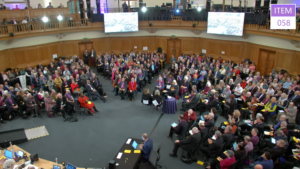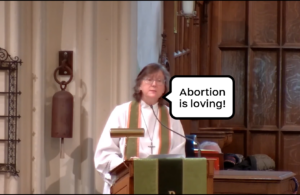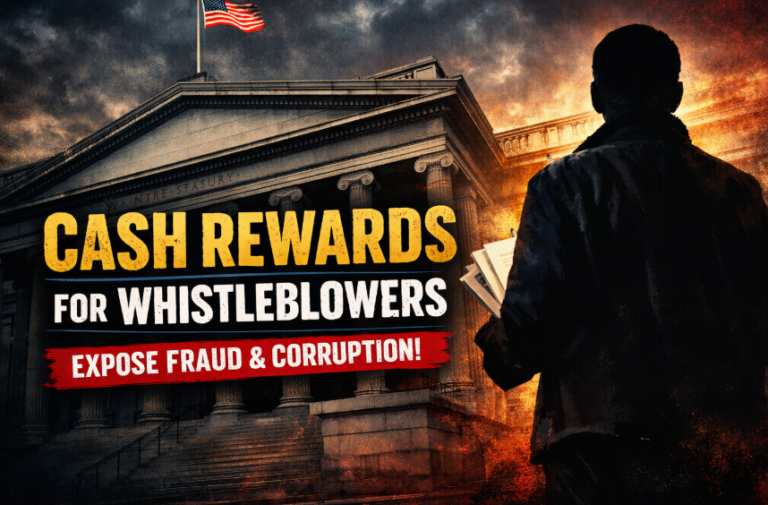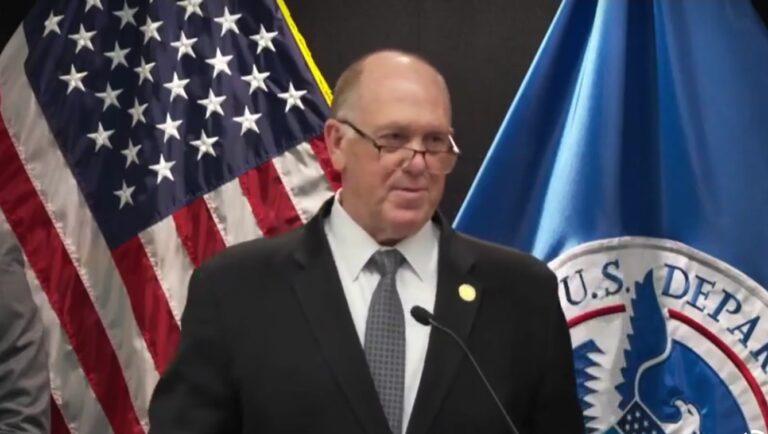Justin Giboney is the founder of the AND Campaign, a wishy-washy organization that seeks to strike a middle ground between the democrats and republicans by always leaning toward the former, as well as a prominent The Gospel Coalition (TGC) contributor.
In a talk with David French as part of the Good Faith podcast, Giboney says that all white Christian churches owe racial reparations, even new ones who weren’t directly involved with it or who have no history with it, and that anyone who suggests otherwise is just trying to get off on a ‘technicality.’
French: The Protestant church in the US is just a whole bunch of brand new institutions, right? You’ve got all kinds of non-denominational churches that have sprung up in storefronts, for example. They have a history, but it might be to 2011, you know, that particular church? What do you say to a lot of these much newer Christian institutions? There’s all kinds of them in an evangelical spaces that have exploded and grown up since the end of slavery, since the end of Jim Crow. And they’re gonna look at you and say, ‘Justin, what are you talking about? We, my institution that I had, I’m a part of, had nothing to do with it. I have had nothing to do with it. Yet. This institutional analysis doesn’t make any sense to me, because we’re not at a seminary that benefited from slavery. We’re a church that started with 23 people and an old, you know, an old 7/11 building 15 years ago, what do you say to us along those lines?”
Giboney: I would say that you’re part of a culture and institutions that have benefited in general, right? So you know, whenever we look at sin, whenever we look at Christian ethics, you got to look at the spirit of it. Because if we want to get out of something, if we want to be overly technical and be lawyers, like you and I are, we can do that. I wouldn’t do that with God, though.
And I think if you really look at the spirit of, honesty, if you really look at the spirit of what the ethic is saying, have I in direct or indirect ways had a benefit? And even if I didn’t, have somebody been, has something been taken from somebody? What is my responsibility? So yeah, we can get technical, we can say, well, you know, ‘if you look at this, we didn’t exactly you know, we weren’t the ones, we shut this organization down and started something new’.
Yeah, but the benefits of that old institutions still flow in one way or another to the new institutions, right? Even if it isn’t a line item in the budget, right? There’s still ways that that flow from one of the other.
So you got to look at the spirit of it, and Christians know that in other in other spaces, we know that in other situations, but we want to get very technical and just find ways to get out of it. You can convince yourself with that. I would be worried that you could convince God that. And so we need to look at a little bit different
The And Campaign's Justin Giboney says American churches, even if they were formed as late as 2011, should still calculate how much they owe in racial reparations, because "benefits" from a hypothetical "old institution still flow, in one way or another, to the new institutions." pic.twitter.com/h30oSZcB5e
— Woke Preacher Clips (@WokePreacherTV) August 3, 2022






















9 responses to “AND Campaign Leader Says White Churches Who Don’t Want to Pay Racial Reparations are Arguing With God”
Alright, I’m convinced. Now that we’re extracting monetary compensation from people based of their color I just need to figure out how much white people are owed by the black community for their disproportionate contributions in the areas of raping, murdering, and sucking tax dollars via welfare and incarceration.
I made $30,030 in just 5 weeks working part-time right from my apartment. When I lost my last business I got tired right away and luckily I found Sthis jobs online and with that I am able to start reaping lots right through my house. Anyone can achieve this top level career and make more money online by:-
.
Reading this article:>>>> http://easywork0s1.blogspot.com
Why do people think that we already don’t have reparations in the guise of government jobs that come with very generous pensions and allow people to retire in their mid-to-late 40s to early 50s, and in a lot of cases, collect on their pensions for more years than they worked, which is 20.
We have many other forms of reparations as well in the form of public assistance and generational dependence on it as I see evidence of it all around me with folks living in bigger and newer units that I have and yet they don’t work and are physically able.
The other thing is let’s say $50,000 or whatever amount would be decided on for reparations. Do you think it would just be a one time thing or, more likely, ongoing? And what happens if the money were blown on frivolous things as we all know they likely would be as even many millionaire professional athletes are bankrupt 5 to 10 years after retiring if not sooner.
Give ‘em $100K each but they got to go back to Africa. (Hint: they will take the money and then stay and beg for more)
I am profiting (400$ to 500$/hr )online from my workstation. A month ago I GOT chek of about 30k$, this online work is basic and direct, don’t need to go OFFICE, Its home online activity……j5 By then this work opportunity is fbegin your work….★★
~Z36)
Copy Here→→→→→ HomeOnlineWork2
[…] The And Campaign, a leftist political organization led by democratic political strategist and slavery reparations advocate Justin Giboney to present How I Got Over, a documentary on the origins of the Black Church. How I […]
[…] of redemptive social justice is a rejection of orthodoxy and when he later claimed that all white Christian churches owe racial reparations, even new ones who weren’t directly involved with it or who have no history with […]
[…] mainstays like SSA lesbian Rebecca McLaughlin, Gospel Coalition contributor and reparations hustler Justin Giboney telling trainees to somehow “affirm [the] human dignity and flourishing [of LGBTQ folks]” […]
I think it’s a serious question, one which we ought to really dig into. Slavery has produced a unique kind of racialness in our culture that continues to keep the church in America seperated and disunified. MLK’s observation in the 60s that Sunday morning is the most segregated hour in America is still largely true. As Jesus, said, “if your brother has something against you, leave your gift at the altar and go be reconciled,” I mean think of it, what if Christians could figure out unity without uniformity, the whole world would say, ‘man, maybe God is real?!’ (John 17) And for that I’m not sure there’s a price too high…cf. Jesus’ price that we would all be one.
But we’re not in the practice of thinking about corporate sin or corporate repentance. There’s a sense about generational sin in some Christian circles, but even this is only felt and delt with individually. It seems John Edwards and the pastors of the Great Awakening had a sense of corporate sin, as they begged God to forgive America for its sins in the 1700s. What does a more robust theology of corporate sin and repentance look like for us today? How do we walk the line between personal and corporate responsibility as members of the Body of Christ?